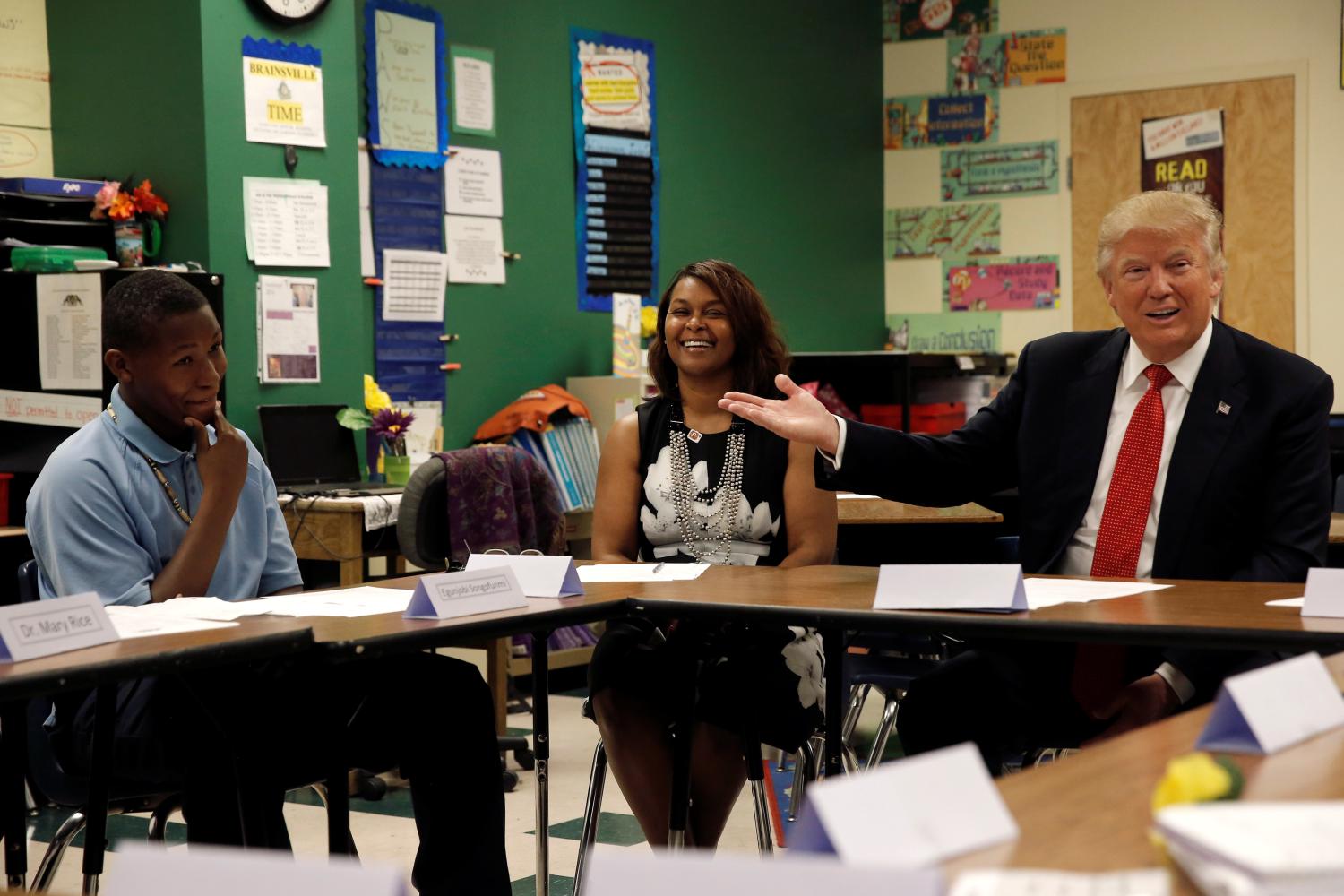Donald Trump’s victory in the 2016 presidential election is widely viewed as a signal of change for the federal government’s role in society. Following on the heels of the recent enactment of the new Every Student Succeeds Act in December of 2015, which rewrote the rules of the federal government’s role in the nation’s schools, the future of federal education policy is fluid and uncertain.
In this confluence of circumstances, co-authors Douglas N. Harris, Helen F. Ladd, Marshall S. Smith, and Martin R. West offer a set of principles to guide the federal role in education policy. These principles are rooted in the history of American education and consistent with broader principles concerning the role of government in society. According to this bipartisan group of scholars and policy experts, the following principles define the appropriate role for the federal government in PreK-12 education, and should be carefully considered by President-elect Trump, his secretary of education, and Congress:
- The federal government should ensure that no student is denied the right to equal educational opportunity based solely on race, ethnicity, gender, disability, or other protected status.
- The federal government should provide compensatory funding to facilitate access to educational opportunity for high-need students, including, but not limited to, students living in poverty and students with disabilities.
- The federal government should support education research and development, and the gathering and dissemination of information about the scope and quality of the nation’s education system, to inform policy and practice at the state and local levels.
- The federal government should, in a manner consistent with both its unique advantages and limited capacity, support the development of conditions to promote continuous improvement of state and local education systems.
In addition to suggesting what the federal government should do, these principles establish boundaries for where its efforts should end.
In order to provide concrete and constructive recommendations based on these principles, the Brown Center invited a diverse roster of experts of contribute memos on specific issues in education that are likely to face the new Trump administration. These memos will be released serially on the Brown Center Chalkboard over the coming weeks. A complete list of the contributors and memo topics are included below:
| Topic | Author |
|---|---|
| Federal school finance policy | Nora Gordon & Martin West |
| Improving the teacher workforce | Pamela Grossman & Susanna Loeb |
| Improving student achievement by meeting children’s comprehensive needs | Mary Walsh & Joan Wasser Gish |
| Career and technical education | Robert Schwartz |
| Special education | Thomas Hehir |
| Improving and equalizing high school and college graduation rates for all students | Marshall Smith & Kelli Parmley |
| Powering education improvement and innovation while protecting student privacy | Dan Goldhaber & Aimee Rogstad Guidera |
| Building a cohesive, high-quality early childhood system | Daphna Bassok, Katherine Magnuson, & Christina Weiland |
| English Learners | Kenji Hakuta & Raymond Pecheone |
| A shift in the federal role needed to promote school improvement | Anthony Bryk, Helen Ladd, Jennifer O’Day, & Marshall Smith |
| Improving the federal role in education research | Douglas Harris |






